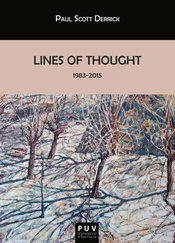Then he makes her some tea to have with the aspirins and runs his fingers through her hair until she sleeps. Now it’s two in the morning and he isn’t sleepy. The chronic discomfort that begins, and focuses, in his back, above his lumbar region, gradually spreads. He gets out of bed and leaves the room carrying his clothes with him, very careful not to wake her. He pulls the bedroom door to, trying to do it fast enough for the hinges not to creak. He puts on his trousers, his shirt, his socks. He does the washing up that had been left in the kitchen sink. He puts on his trainers, his jacket, sits on the sofa, waits. He can’t remember what he did at the beginning of the week, the only thing he can remember without any difficulty is walking for hours through the city’s suburbs, boarding buses at random and getting off in the most unlikely places, trying to get to know it, to learn it by heart. He doesn’t always manage to learn it. Identical streets, identical houses, only the full mailboxes to tell them apart, the curtainless windows showing the empty rooms, curtains that are never opened, lights that are left on day and night, lights that are never turned on, lawns and flowers, bushes in gardens and unpruned trees. Hours he spends lying down listening to the same track on a CD. The time that never stops. The growing inattention, the growing impulse towards explosion and robbery. He cries and he can barely breathe for the guilt. Rener is patient enough to let him pretend. The words he has said to Rener, the conversations, were what remained of his dream. The future of Brazil never troubled him as much as it did this afternoon. He feels old (and Passo Fundo is no longer nearby to feel old with him). He wants the life that the Indian girl on the side of the road re-awoke. He couldn’t quite stomach it, and he still can’t.
Half past five in the morning. The dawn cold sharpens. Paulo gets up from the sofa, opens the apartment door, leaves. He walks to the Elephant and Castle Shopping Centre, waits for the bus that will take him to Camberwell. Before six he arrives at the house of the two people who usually help him with the occupations; he knocks on the door till they wake up. He offers each of them two hundred pounds, saying he needs back-up on a collection visit that he needs to pay before ten o’clock. They accept his proposition, Paulo says he will be back at eight, they go back to sleep. Paulo stops in at a 7-Eleven, picks up a Twix and a Mars drink. He takes the bus out to the squat in Chelsea that he broke into two months ago to be his permanent residence, his private place, his perfect place; quality carpet, central heating, excellent paintwork on the walls, the type of luxury few people have. Life doesn’t get any better is what goes through his head, it’s in the nature of this strategy to feel as though he’s playing the game, to be crazier than his opponents . (Deep down he’s just the same and he doesn’t notice.) He goes into his flat. He puts the Public Enemy cassette into the tape deck, presses play. He turns the volume up to four (never annoy your neighbours). He changes. He gets his workmen’s boots with the steel toe-caps, the knuckleduster he received as a recent part-payment, a cap and his shades. He puts guaraná powder in what’s left of his chocolate drink. He covers it, shakes it, drinks. He consults the cheap watch that he bought in Brixton, similar to the one he gave Maína. He puts the watch in his pocket. He gets two oversized plastic laundry bags. He goes out. He walks along the Thames as far as the Tate Gallery, takes the bus back to Camberwell. He arrives half an hour before the agreed time. He buys a Twix in the little shop opposite the bus stop. He looks at the newspaper headlines as he eats it. Nothing about Brazil. He goes back out onto the pavement, walks to the nearest public payphone. He calls his parents’ house. The telephone rings until the answering machine kicks in. ‘Hi … It’s Paulo. You ok? I was calling to find out about the elections … And to say my holiday here is going great … ’ He doesn’t say anything for a few seconds. ‘Just to say I’m fine, I don’t need anything … ’ and remains silent until the recording comes to an end and, a moment later, the line goes dead.
The three young men enter the patio, the back door is open. Paulo puts on the knuckleduster, the other two are carrying iron bars, a fifty-centimetre bar each. Paulo goes in first, the only person he meets is an Indian man who introduces himself as the electrician. Paulo asks where the owners of the house are. Understanding the nature of the situation when the other two come in holding their iron bars, the Indian man says that the guy who owns the house and who hired him will be back soon with the bit of wiring that needs to be changed. Paulo says that’s fine and asks him to take a seat on a bench. He gathers up Rener’s tools and the clothes belonging to the couple, trampled on and heaped up in a corner of the living room. He doesn’t find the Walkman. He puts everything into the bags he has brought with him, hands them to the two guys who have come with him. He doesn’t know what he’ll do with the electrician, this guy who, Paulo now sees, has an annoying face. Now isn’t the time to hesitate, he has got this far. He asks how much he’s earning, the man says he charges eighty a day. Paulo takes two fifties out of his wallet and asks to see the other man’s wallet. The electrician hands it over without hesitating, Paulo opens it, removes his travel pass ID. He checks the photo to be sure that it really is the same man, puts it in his pocket, tells him to get another one made at Arsenal Tube station, puts the notes in the part of the wallet where the travel pass was, says that’s for his day plus twenty for the disruption. He holds out his hand in greeting, the Indian man shakes it, and Paulo says he can go. One of his companions asks Paulo if he knows what he’s doing, it’s stupid to let the man go like that, he’ll call the police. Paulo just says that they can go, too. The electrician excuses himself and gathers up his things, he leaves. Paulo explains that he is going to stay, he has a Walkman to claim from the owner of the house, and then he will stop by their place to pick up the big bags. He asks them to leave one of the iron bars. One of them says staying there is madness. Paulo’s ego swells when he hears him say this. The two of them leave. Alone in the house. (What a grotesque stage he has set up.) He puts on his hood and his glasses. He positions himself by the door, he tests the weight of the iron bar, its inertia, its movement. He doesn’t stop to think, doesn’t look for any logic. He hears the noise of the gate and the steps coming down by the side of the house. The shadow, oblivious, moving at the windows, close by, exciting. The sound of the door, the sound of the handle, they’re one and the same, the door opening, the movement already seeking a response. His own movement, the movement of attack, the knot that seems to grip all the knots that hold those two strangers together. The second blow to the back, the same height as the first, he doesn’t think about the cowardice of taking the other man by surprise; the cry, and the single kick that knocks his opponent down to the floor, a kick from the leg with the good knee, a kick to the head, stamping on the right side of his face and a blow straight to the hip. The doubt. The spit. Conquest and then withdrawal. The air that is never fresh for someone who can’t sleep. On the pavement he dares not look back. The bar is hidden inside his jacket, the knuckleduster unused in his pocket; he starts to think again. What make of Walkman was it? He takes off the hood and glasses. He walks on for a few metres. Birthdays. He waves at the passing taxi, the driver stops, asks where he’s headed. Chelsea (where everything seems always to be in order). The driver says he can get in. Paulo gets in and settles himself on the seat, his stomach has already stopped hurting, and when he looks out he spots the cocker spaniel and then the lady.
Читать дальше












